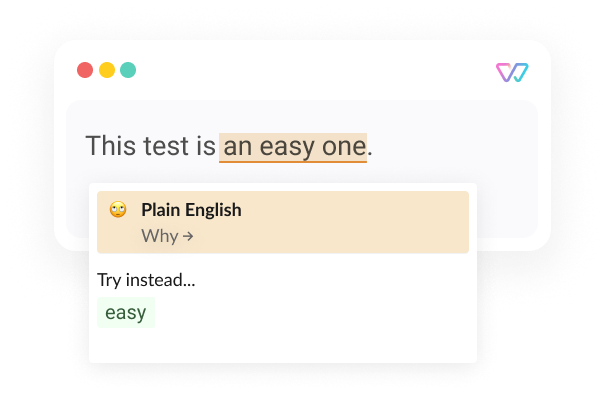 Cultural Diversity
Cultural Diversity
Witty alerts you to biases and stereotypes surrounding ethnicity, nationality, and race. It flags words and expressions that complicate communications in multilingual environments. Offered alternatives and inspirations help you foster a culture of acceptance, respect, and mutual appreciation.
Our world is full of people from all walks of life and backgrounds. They have different ancestries, languages, traditions, and ways of life. Their biographies and ethnic and cultural identities transcend national borders. Witty flags cultural stereotyping, discriminatory language related to migration, Yiddish pejoratives, and the vocabulary of Nazi Germany. We point out racist slurs and language with racist undertones and connotations. You can mitigate risks related to language barriers by avoiding abbreviations, acronyms, fillers, and empty words that contribute to misunderstandings in multilingual environments.
Unconscious bias
 Cultural stereotype
Cultural stereotype

When talking about a person or a group, appreciate them as individuals with their own cultural identity.
Punctual Germans, polite Japanese, argumentative Italians: Generalizations can be well-intentioned. But they fuel prejudice and discrimination, because they reduce people to arbitrarily ascribed characteristics. Cultural stereotypes can also be an expression of ethnocentrism - a way of seeing the world solely from the perspective of one's own culture, customs and values. This can isolate and alienate people - and adversely affect the working relationship.
Basic Example
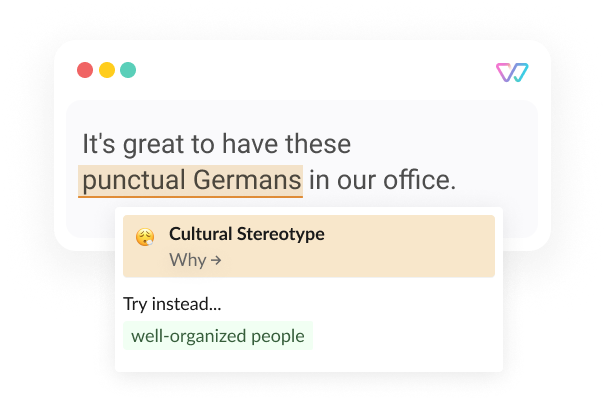
Advanced Example
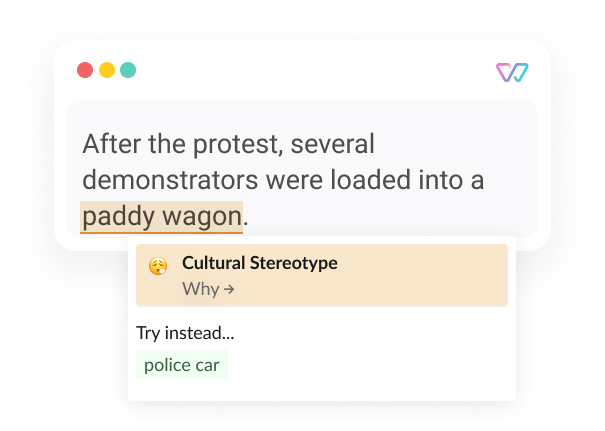
Basic Example
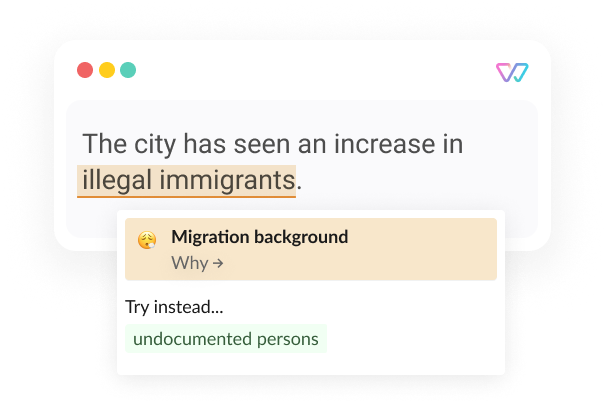
Advanced Example
-1.png)
 Migration background
Migration background

Frame your ideas as if you were speaking to or about someone with your own cultural background.
People with international biographies and family histories face biases, sweeping generalizations, and stereotyped attitudes in the communities they live in. Witty alerts you to language that aims to exlude and marginalize people with a migration background and multicultural perspectives and frames them as other.
 Nazi Language
Nazi Language

Steer clear of using Nazi vocabulary to avoid coming across as a sympathizer or as trivializing the experience of the people they victimized.
The Nazi regime drew on neutral, matter-of-fact, and technical language as well as phrases related to cultural traditions for euphemisms that would hide - or render less conspicuous - the dehumanizing concepts and the bureaucracy-supported machinery of persecution and mass murder. Scientific terms were appropriated and instrumentalized to give the regime's ideology and actions the appearance of being grounded in science. Repeated over and over by the Nazi propaganda machine, this language was so ubiquitous many still use words like "Sonderbehandlung", or phrases like "Jedem das seine" today, unaware of their Nazi origins or history. To those in the know, these words can be offensive. They can bring up painful experiences and raise questions about the leanings of the person using them.
Basic Example
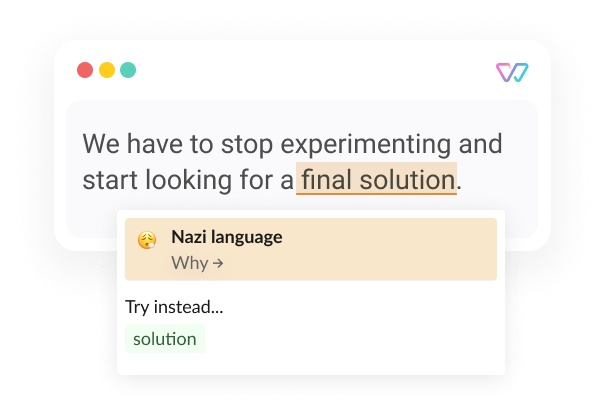
Advanced Example
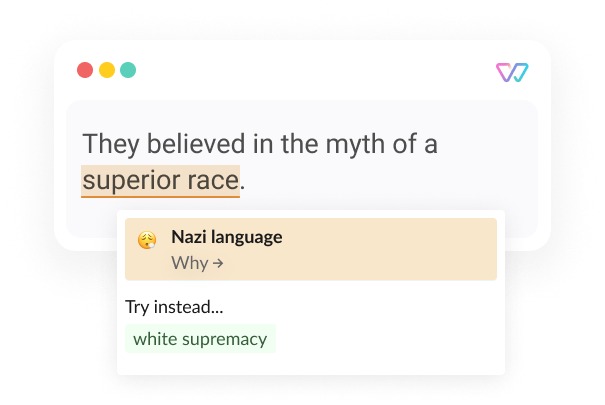
 Yiddish Pejoratives
Yiddish Pejoratives

Note: This diversity dimension is only available in German
We "schachern" (haggle), get annoyed about "Gemauschel" (jiggery-pokery) or fear being "abgezockt" (ripped off). Everyday German is full of loan words from Yiddish. But caution is advised when using Yiddish loan words with a negative or derogatory meaning. This is because many Yiddish words that originally had a completely neutral or positive connotation have been given a derogatory reinterpretation in German. And that makes them an expression of anti-Semitism. Yiddish words that have retained their casually charming character, such as "schmusen", "malochen", "Tacheles reden", finding something "meschugge" or being "angeschickert", are harmless.
Ancestry
 Ancestry
Ancestry

To make everyone around you feel psychologically safe, respected, engaged, and valued, avoid language that others and devalues people based on their ancestry or ethnic background.
Many words and phrases used in everyday exchanges have racist origins, undertones, and connotations. Some are obvious, like "master bedroom," "gyp," or "Black Magic.". Others are less overt like "melting pot" - a concept that frames ancestries and heritages in a way that fails to acknowledge white privilege, prevailing power dynamics, and disparities. And then there are racial microaggression, such as asking where a person is "really from" or praising them for being articulate. Why not ask, where they've lived, or thank them for a stimulating conversation?
Basic Example

Advanced Example
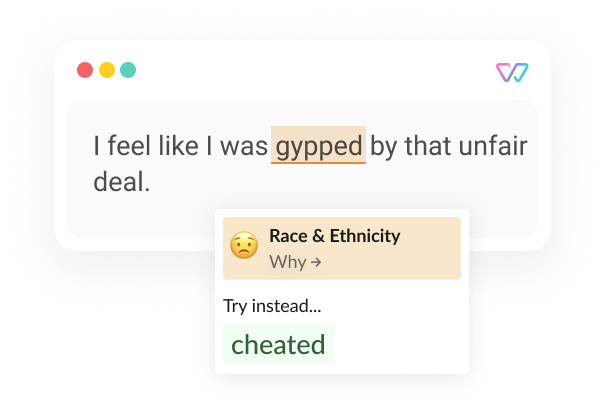
Basic Example
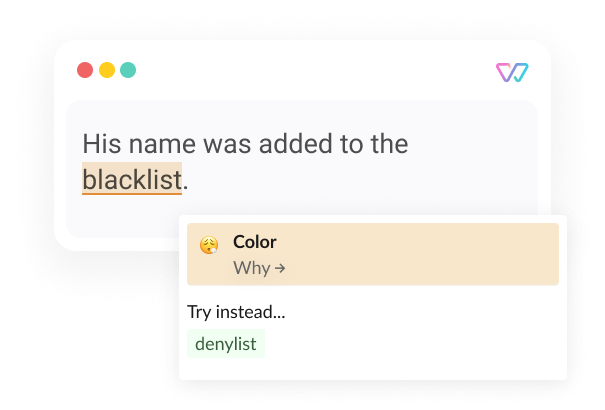
Advanced Example
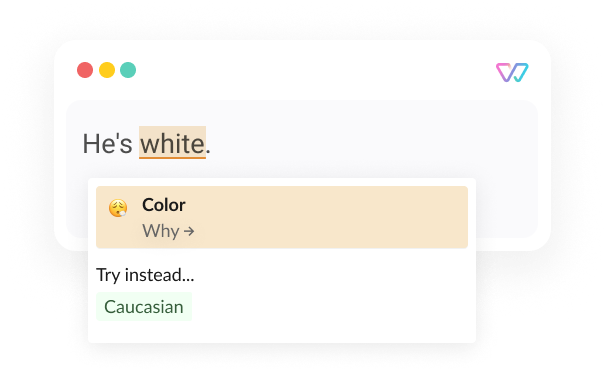
 Color connotation bias
Color connotation bias

Avoid using colors and tones to describe value, values, quality, or skin. Using color words figuratively can be highly offensive to the people around you who live with racialized identities.
We use colors every day to describe the world around us. This works great for things and their actual colors. It’s when we use colors to refer to ideas attached to colors, where using color words can become hurtful. Using color words for skin is one of the tools of the discrimination based on skin color, or skin tone in colorism and shadism. Color words as a way to describe ideas can be highly offensive to the people around you who live with racialized identities.
Language clarity
 Abbreviation
Abbreviation

Spell out abbreviations and acronyms to avoid misunderstandings and make people feel at ease.
Have you ever felt uncomfortable asking about an unfamiliar abbreviation or an acronym? It happens to all of us. Every day. Spelling abbreviations and acronyms out, may feel tedious at times but it helps keep people engaged and everyone on the same page. Letter salads are especially disorienting and awkward for:
- People new to the company who have yet to familiarize themselves with the company style guide and business jargon in your field.
- People with another education trajectory. They might feel they can't keep up or assume you're showing off and actively excluding them.
Basic Example
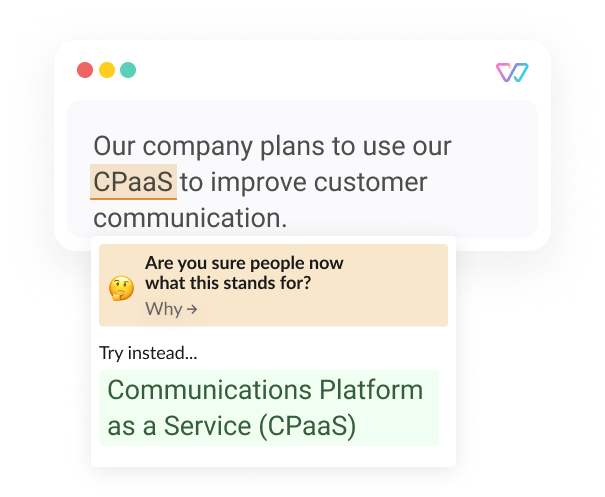
Advanced Example
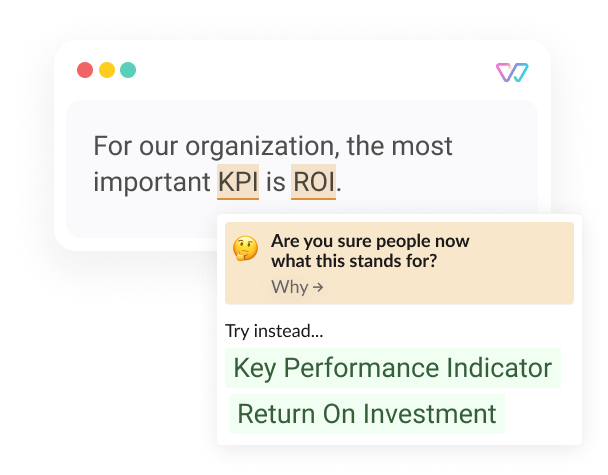
 Anglicism
Anglicism

In today's business jargon, we often use
expressions from English business language.
Depending on the audience, however, these
expressions exclude people:
- They do not understand an Anglicism or misinterpret it because they have been through a different education or do not work in the same professional field.
- The use of Anglicisms is perceived as exclusionary, arrogant and 'from above'.
 Empty word
Empty word

To connect and engage your audience, avoid empty words and generic messages.
Empty words are everywhere. They promise an attractive salary, tempt us with a flat hierarchy, or offer personalized customer experiences. These words are so vague and over-used, they’ve become meaningless. Empty words bore and annoy us. And the vagueness can feel calculated - like hiding because someone can’t or won’t be tangible. You want to help people connect with your message in a meaningful way? Be authentic. Be specific. Use numbers and vivid examples.
Basic Example
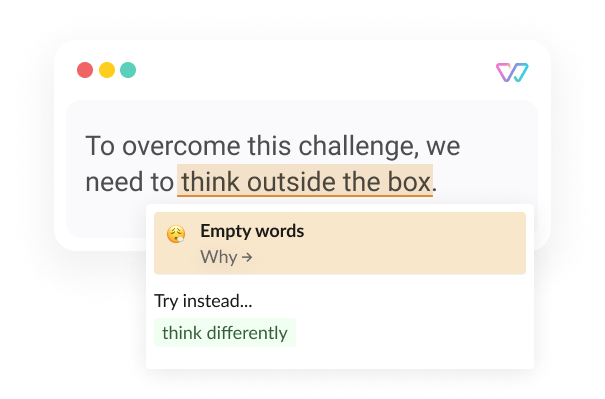
Advanced Example
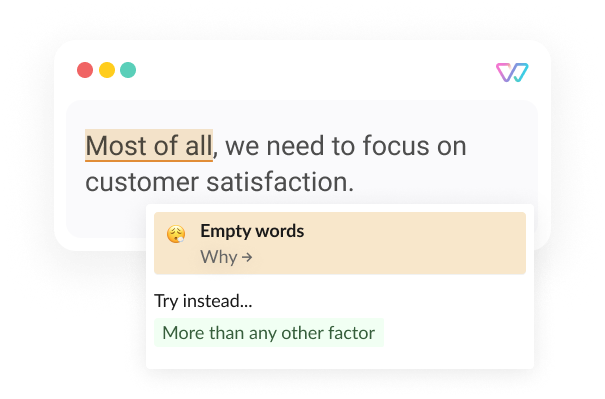
Basic Example
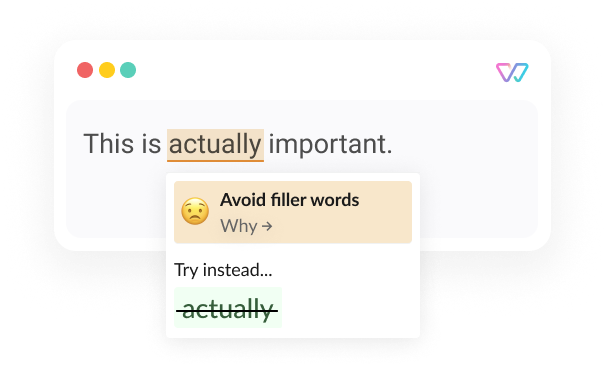
Advanced Example
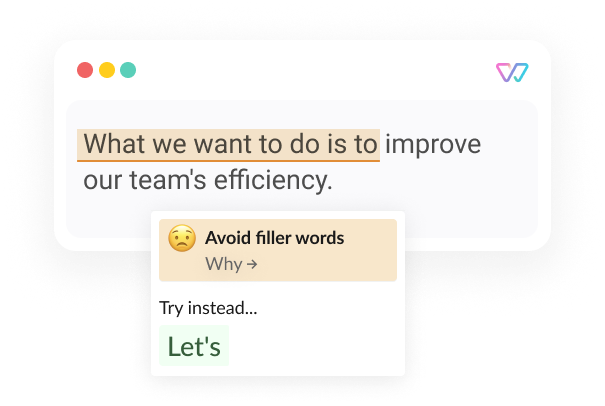
 Filler words
Filler words

To make your message effective and easy to grasp, use filler words sparingly.
Um, like, you know: Filler words are everywhere in our sentences and conversations. But fillers can create barriers. They distract from the message we want to get across - and make it more difficult to understand. Fillers add to one of the biggest challenges for people from many different language backgrounds working together: misunderstandings in their daily communication.
 Plain English
Plain English

To ensure everyone understands, keep language clear, short, and direct.
Every day, we have to read and understand large amounts of information: emails, reports, presentations, and manuals. We share complex subject matter in teams where many speak English as a second language. And more often than not, we're in a hurry. We don't have time to read text twice to make sure we understand all the information it contains. But misunderstandings can be frustrating - and expensive. With clear and straightforward language, you help everyone collaborate effectively, keep engaged and stay productive.
Basic Example
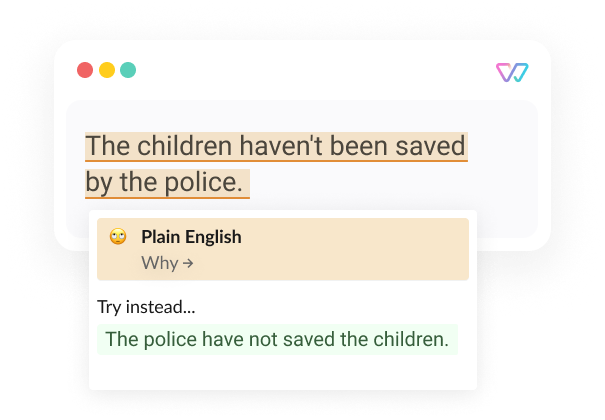
Advanced Example
